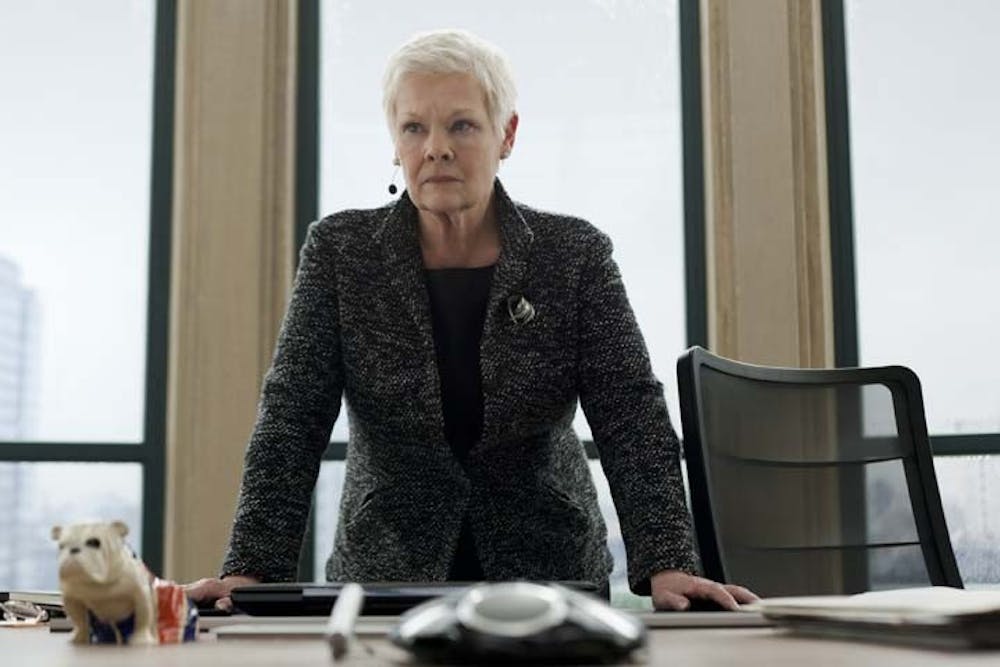Since “The Dark Knight” grounded Batman in gritty reality, the line between popcorn entertainment and intimate drama has grown noticeably thinner. Big genre films now have more complex, thoughtful characters and tangible conflicts.
A potent blend of old-fashioned escapism and contemporary grit, the new James Bond film, “Skyfall,” is the latest proof that moviegoers can have their popcorn and eat it, too.
Like the 22 previous Bond films, “Skyfall” is an adrenaline-charged action adventure. But unlike many of them, this one considers what happens between gunplay and explosions. In fact, this film even stops and dares to question Bond’s ability and relevance — a question made explicit in a montage wherein Bond (Daniel Craig) undergoes physical and psychological testing after a long absence from British Intelligence.
Upon Bond’s return after his supposed death, intelligence directors M (Judi Dench) and Gareth Mallory (Ralph Fiennes) wonder whether he “has lost a step.” The suspense comes from waiting for him to stumble.
More impressively than any other Bond collaborators, director Sam Mendes (“American Beauty”) and cinematographer Roger Deakins (“The Shawshank Redemption”) visually suggest that Bond may be out of his element. Reflecting his disorientation, the action sequences are almost dreamlike and otherworldly. The notion that Bond is a fish out of water is even literalized in a scene where he fights a man in front of a digital screen projection of jellyfish.
There is an even larger implication at work in this surreal set-piece — the notion that action spectacles are no longer the norm. This is evident in the fact that the film’s most thrilling scene is not an action sequence, but a dialogue exchange between Bond and rogue agent/cyber-terrorist Raoul Silva (Javier Bardem).
In this long and tense exchange, in which Bond is tied to a chair, sinister remarks roll off Silva’s tongue. And at one point, he turns Bond’s sexuality against him, unbuttoning the captive spy’s shirt and playfully caressing his chest. This moment embodies the film’s focus on Bond’s vulnerability. In fact, it’s not only about his vulnerability, but also that of fellow secret agents — the plot involves a plan to reveal their identities. As in most Bond films, the plot feels incidental — more of a mere catalyst for the characters’ collision than a substantial element. But that is a minor nit to pick in an otherwise terrific film.
In the 50 years since James Bond’s jump to the big screen, this franchise has never felt so fresh. “Skyfall” brims with stylistic verve and searing emotional intimacy, both of which seem palpable rather than distant or foreign as they did in many of the previous Bond films.
Thanks in large part to Craig’s performance and Mendes’ direction, the legendary spy no longer seems like an imaginary, impervious icon, but a flesh-and-blood human being. In this film, he loosens his sleeves and reveals his heart. The film also proves that blockbuster entertainment still has a few tricks up its sleeves as well — that it can balance substance along with style.


